Most of us live in cities. According to the U.S. Census Bureau, 80% of Americans currently reside in urban areas. There’s nothing inherently wrong with that, I suppose, other than that cities are so … limiting. Sure, you can shop to your heart’s content or visit any number of restaurants, bars and clubs. You have your choice of gyms and coffee shops and schools for your kids. And yet the very essence of city life is defined by concrete, steel and asphalt. Either the grass and trees are completely boxed in, or they’re forced to fight their way through the tiny cracks in our civilized facade. Even the green spaces — the neighborhood parks and ball fields and golf courses — are so sculpted and manicured that their connection to the natural world seems tenuous at best.
Nature, of course, was humanity’s only home for millennia. We evolved to wander across verdant plains, and slip through forests, and explore brackish swamps and the high, distant ridges. Cities, however vital and interesting, are kryptonite for those of us who revel in fresh mountain breezes and the miracle of living soil.
My wife and I live a decidedly rural existence here in western Montana. Our yard, which is both unfenced and difficult to delineate from the broader landscape, brushes up against tendrils of the truly wild. There are mountains, sheer and massive, just to our east. “Town,” with its grocery store and restaurants, is five miles to the west. There’s a trout stream on the edge of our property, and a river of some note less than five minutes from our front door. And while there are indeed a handful of other houses in our general vicinity, city dwellers would no doubt view them as few and far between.
I typically sit on my living room couch when I work; mostly because our home is so small. My wife would rather that I didn’t — it’s no doubt a pain to have your spouse use the living room as his office — but it’s either that or appropriate our bedroom. And from our living room couch I can look out and see both our yard and the mountains beyond. As much as the October foliage tends to catch my eye — it’s an ever-changing palette of color at this time of year — the local fauna truly make things special.
Just now, for example, I glanced up from my laptop screen and saw a whitetail doe leading her young-of-the-year fawn across the far edge of the yard. There’s likely a second fawn there as well, as I noticed a few more flickers of movement back in the tall grass.
More Like This
We live amidst a veritable smorgasbord of wildlife. There are the little guys; the mice, voles, shrews and pine squirrels that are common here in Montana. We have turkeys out in the yard, too, as well as the occasional ruffed grouse. The whitetails are plentiful, and three generations of golden retrievers have taken umbrage at the fact that the local deer graze to their hearts’ content right out the back door.
Because Finn and Eowyn, our current pups, will run off any deer in the yard, I tend to stick my head out the door and make sure the coast is clear before letting the dogs outside. There were no whitetails this morning, but a movement caught the corner of my eye and I turned to see a massive bull elk standing next to a birch tree.
He didn’t make a sound, though — no squeaks or squeals or mighty bugles — and within a few seconds he reversed course and disappeared back into the woods; discretion, as the saying goes, being the better part of valor. I ended up taking Finn outside on his leash so he wouldn’t chase the elk and as we wandered around I couldn’t help but think about all the wildlife we’ve seen in our yard over the years.
In addition to the local whitetails, the occasional mule deer drops down unannounced from the mountains. Elk and moose swing by from time to time — including a cow moose who loves to browse our crab apple trees. There are foxes and coyotes and bobcats. Songbirds and raptors. We’ve had mink and an entire family of otters in our yard, although not at the same time.
Black bears visit us, too, as well as griz. Mountain lions and wolves. All right here. All where our son, now just off to college, tossed his football and played “hide & seek" with our pups.
Sometimes we end up with stories. I watched a fox try to take a big tom turkey right out the front door. A young black bear drank from the galvanized tub that Molly keeps filled with water for the dogs. An osprey devoured a large rainbow trout a stone’s throw from our living room. One of our goldens chased off a big grizzly from under the cottonwood that shades the north side of our house. In fact, Finn and I bumped into a medium-sized bear — I couldn’t tell if it was a black bear or a grizzly in the light from my headlamp — at the end of our driveway last night.
More often than not, though, it’s less a story and more a snapshot; a glimpse of nature in the raw without cameras or screens or the professional narration of a documentary. Our windows tempt us to look outside, our back door beckons, and whether we’re indoors or out, we find the land and its denizens both spectacular and comforting.
It’s sad to say, but most people will never experience anything like this; at least not on a regular basis.
East coast friends watch Kevin Costner in “Yellowstone” and ask if what they’re seeing on television is the real Montana. It’s not. The real Montana is better. Which is why those of us who live here in this last, best place are so fierce about protecting it. It’s why my son Kian, along with 15 other young Montanans, sued the state over climate change — and won. It’s why any Montanan worthy of the name will stand up for our wild places and our rural way of life when they’re threatened.
Here’s the truth of it. You can’t bottle it and sell it off. You can’t see it from the east coast. It’s not the cowboy soap opera on your television screen, with folks fly fishing from the backs of their horses. But Montana, with its mountains and plains and trout streams, is the antithesis of city life — and that’s a very good thing.




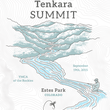
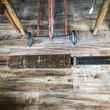


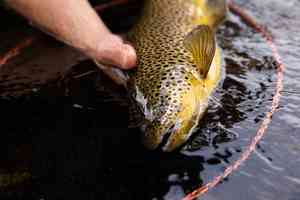

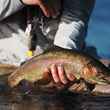
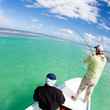
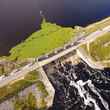
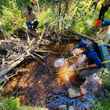
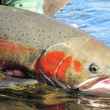
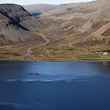



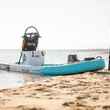





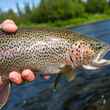
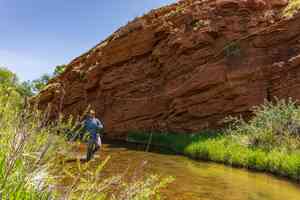


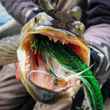

Comments
Dan Hammond replied on Permalink
So what you’re saying is that you’re wealthy and get to experience a kind of rural living that most people - city dwellers or country dwellers alike - don’t get to enjoy. I live an actual rural life in a town of 3,000 people. The fishing is decent when you can get to it. Most of it is on private land owned by cattle ranchers and there’s really no “country nice” anymore. They’re not about to let you fish it unless you’re white, male, and Republican. Even then you’d better pay up. Those enrolled in Open Fields and Waters programs put up dubious “no trespassing” signs or otherwise do their best to collect their government check without actually allowing access to the land.
Salaries are low, jobs can be few and far between, and good luck trying to find housing. There’s little in the way of upward mobility and moving away can be hard unless you’re one of the lucky few with a job that affords you the ability to put some money away. And oh, by the way, did I mention the racists and misogynists? They’re pervasive and vocal. The local Walmart is the best tackle you’re going to find. There’s not a decent place to get a bite to eat for 100 miles and entertainment is hard to find. Where there are public outdoor spaces there unkept trails, but at least you’re alone.
There’s a lot of narrative surrounding rural living, but the truth is that if it has a view, or a river, or is otherwise in an idyllic setting either your family got it from the government in the 1880s or you’re otherwise incredibly privileged.
Drew Irby replied on Permalink
I think many of us who enjoy the outdoors in all aspects would give our eye teeth for an affordable, easily accessible home in the “ country”. I too prefer the rural over the heavily populated but, understand each has its trade offs.
I think it comes down to sustainability. If you want to live outside Missoula and have a writing or computer centric job that will pay you as long as you keep up the pace, good on ya! Gonna be tough raising a family at the same time but, that’s the trade off thing again.
Some 46 years ago, I fell in love with the Bitterroot Valley and wanted to live there but 1978 was a recession year and, no jobs to be had. In less than 2 years I was married, in suburban southern CA with a corporate sales job, short haircut, 3 piece suit and dreamed of what might have been….
The takeaway today: ( if I could do it again) first line up that job where you can work from anywhere (preferably with a Northern Exposure vibe) and go for it! Shelve the family plans and dream cabin for a while until things settle. Then prepare to battle those Visitors who will want to love your paradise to death.
kelly sommer replied on Permalink
As you stated Todd, 80% of Americans live in urban areas. You, all rural folks, and everything wild should be damn glad of that!
I'm afraid of what the next 100 years will look like out your living room window if more and more land is sold (greed or necessity) and sub-divided to those who want a piece
of country life across this nation.
I've always enjoyed your thoughtful writings, but not quite sure what your message is here. Maybe just one of humility, fulfillment and thankfulness.
Dan Bridger replied on Permalink
I don't get your point. The whole article sounded like an a-holes brag list, because maybe you think other people choose to live in cities or suburbs? I would wager very few do if they had a choice. But not everyone makes coastal or city salaries from their living rooms. And for years now people who come to montana with their out of state online jobs, salaries, and retirements keep buying up land and then voting (or using their kids to sue) away natural resource jobs that used to sustain rural communities. I know there are some awesome places people can still choose to live in Montana if their bank account is large enough. But from the changes I've seen in the last 50 years, too much of that last best place has turned into overcrowded places that much more resemble the cities most of the transplants come from than the Montana of several decades ago most of them moved there to see. You think you're going to protect Montana from climate change, but the growing population is going to take what's left of it away anyway. Enjoy the view while you can.
Pages